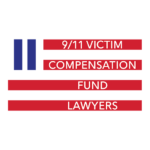“There are guys in worse shape than me — they’re dying every week, every month, “one first responder said. “It’s a torturous death, and they don’t have the coverage or support they need.” This is the reality that many first responders who arrived at Ground Zero on September 11, 2001 have to face. It was not until 2012, after the passage of the James Zadroga 9/11 Health and Compensation Act that the government agreed to pay for the cancer treatment of those who were exposed to Ground Zero toxins under the federally funded World Trade Center Health Program. The decision to include cancer in the World Trade Center Health Program only came after a 2011 study showing that firefighters who worked at Ground Zero were almost 20 percent more likely to develop cancer than firefighters who did not.
The study assessed 9,853 men who were employed as firefighters on January 1, 1996. On and after September 11, 2001, 8,927 firefighters were classified as WTC-exposed. Cancer cases were confirmed by matches with state tumor registries or through appropriate documentation. The public health officials estimated the ratio of incidence rates in WTC-exposed firefighters to non-exposed firefighters, adjusted for age, race and ethnic origin, and secular trends, with the United States National Cancer Institute Surveillance Epidemiology and End Results (SEER) reference population. Additional analyses included corrections for potential surveillance bias and modified cohort inclusion criteria.
Strangely, another study done by the New York City Health Department found no clear association between cancer and the debris at the World Trade Center site. The study, published in 2012 in the Journal of the American Medical Association, observed 55,778 New York residents who were present at the World Trade Center on the day of the attacks and had enrolled in the World Trade Center Health Registry. Among those observed, 1,187 had been diagnosed with cancer by the time of the study. When comparing this number to all New York state residents, the study found an increased risk of prostate cancer, thyroid cancer, and myeloma, but ultimately could not connect the diagnoses to 9/11 due to a lack of statistical significance. Studies are still in progress to confirm the incidents of cancer among firefighters, first responders, office workers and residents.
We know that potential cancer-causing agents such as asbestos that coated the World Trade Center buildings’ columns, and benzene, a component of jet fuel that caused uncontrollable fires when planes barreled into the Twin Towers, have been a concern for researchers studying cancer. With the attacks being only 16 years ago, we still have yet to see all the consequences that can arise due to the long latency period of some cancers.
If you have questions about making a September 11th Victim Compensation Fund (VCF) claim, call Sullivan Papain Block McManus Coffinas & Cannavo PC at (800) 962-9954 or via our contact page.
For information on additional medical studies, see our list of Peer-Reviewed Articles About World Trade Center Medical Issues.
Share On:

